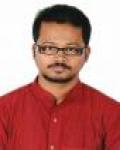Inequality and Human Development
Faculty of the Inequality and Human Development Programme spent 2020-21 building on the foundations it had laid in earlier years. The policy implications of two project reports on demand for non-farm jobs and farmers’ suicides were developed into policy briefs, and there is reason to believe the policy prescriptions for migrant workers found their way into the official response to the Covid crisis. Based on the results of the projects, faculty worked on a book on inequality, Dynamics of Difference: Inequality and India’s Rural Transformation, which is forthcoming from Routledge. The programme also received a substantial second phase of support from TCS which is being used to extend the analysis of inequality in five new directions:
- The relationship between inequality and human development
- The effects of, and response to, climate change
- The dynamics of those left behind in the process of rural transformation
- The changing role of mobility and communication technologies
- The dynamics of age and inequality.

|
Narendar Pani JRD Tata Chair Visiting Professor and Dean School: School of Social Sciences Programme: Inequality and Human Development Room no: S-8 080-22185145 narendar@nias.res.in |

Assistant Professor

Doctoral Student
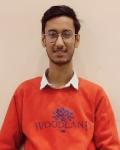
DOCTORAL STUDENT
Doctoral Student

Assistant Professor

Assistant Professor

Project Associate

DOCTORAL STUDENT
Project Associate
Project Associate

Post-Doctoral Associate

Post-Doctoral Associate

JRD Tata Chair Visiting Professor

Post-Doctoral Associate
Project Associate
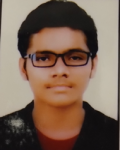
Doctoral Student
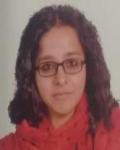
Post-Doctoral Associate
| Inequality and Development in India The research carried out in the programme thus far has strengthened its conviction that not all differences can be considered inequalities. There are differences, such as academic achievements, that are celebrated, just as there are others, including extreme variations in basic living standards, that are reviled. Consequently, the programme treats only ethically unacceptable differences as inequalities. It recognizes two routes to deciding what is ethically unacceptable: the path of rational argument and that of beliefs. Differences that are considered unethical on the basis of rational argument are termed normative inequalities, while those that are considered unethical based on beliefs that are not considered necessary to be defended rationally, are termed descriptive inequalities. This approach to inequality extends the phenomenon well beyond its economic dimensions. Correspondingly the effects of inequality on development extend far beyond its impact on growth. If, following Amartya Sen, we treat development as freedom, there is a need to assess the impact of inequality on the economic, social, political, and other freedoms of individuals, groups, and society as a whole. This project explores the relationship between inequality and a selection of freedoms. To begin with, it will examine the relationship between inequality and the freedom to lead a healthy life, the freedom to be educated, and the freedom to escape absolute deprivation. It will then go on to explore the relationship between inequality and some of the other aspects of what persons want to do or be, as well as their capabilities to do so. |
| Inequality and migration As has happened across the world at least over the last two and a half centuries, development in India has been marked by a substantial movement away from agriculture. This has typically been accompanied by movement of the population from rural to urban areas. Earlier IHDP research on the inequalities of rural transformation in India, however, brought to the fore the divergence between these two transitions: while the share of agriculture in GDP has declined dramatically, the process of urbanization has been much less rapid. This has led to four different responses in terms of migration. There is migration hesitancy in areas where jobs available from dispersed industrialization can be tapped while continuing to reside in the village; when industrialization is not available in the vicinity of the village there is permanent migration out of that rural setting; when permanent migration to an expensive city is unaffordable there is short-term migration in an effort to earn in the city and spend in the village; and when none of these options are available there is migration from one rural area to another as well as the return to the village of migrants who are unable to find a foothold in the city. The four migration related responses to a declining agriculture point to a number of inequalities that the programme seeks to address. At the very outset there is the question of who gets to migrate. It is often the case that the very poor households, typically belonging to traditionally disadvantaged social groups, lack the financial and social capital to engage in economic migration. Within the household, socio-cultural norms often restrict women’s mobility to distant labour markets. In other words, socio-economic inequalities create what can be termed as ‘left-behind populations’ that emerge from the inequality between those who get to migrate and those who don’t, and then form a part of the changing inequalities that remain in the village. Those who do migrate – either short-term or permanently – face a variety of inequalities in the processes of migration. There are the inequalities in the learning of the skills needed in urban centres; differences that are accentuated by the informality of the processes learning. The need for short-term migrants to rely on identity groups to bargain for jobs in the city can at times extend existing inequalities in the village to the processes of migration, even as the earnings of migrants can alter inequalities in the village. And the sheer volume of migrants, both permanent and temporary, as well as the informality they bring with them, alters the nature of inequality in the urban centre as well. This project will explore aspects of inequalities in three elements of migration: inequalities of those left behind, inequalities in the processes of migration including in the learning of skills, and urban inequalities generated by migration. |
| Technology and inequality The process of transformation out of agriculture has altered the relations between humans and nature in a number of ways. There has been a change in land use that has affected forests as well as cultivated land. There have also been increasing demands on other natural resources. If we take technology to be the intended changes in the relationship between humans and nature, this process generates a wide range of inequalities. There are the inequalities that emerge from the redistribution of resources brought about by technology. These inequalities may be most visible in the case of natural resources, as when technological development destroys forests. But technology can also redistribute human resources, as when labour displacing technologies reduce employment. The access to technological products are often marked by differences that are ethically unacceptable. Technology also goes beyond physical space, affecting the way people think about themselves and about others. The access to technology is often presented in a way that celebrates inequality, as in the display of an ultra-modern car. This project seeks to explore the multiple dimensions of inequality in technological change through the lens of a single set of products, those created by digital technologies. Digital technologies are a new site for modern incarnations of inequality, given how they are a realm of experience and activity not separate from the social. Uncovering socio-technological inequalities is integral to charting out the realities of socio-economic transformation in terms of novel vulnerabilities, precarities, and uncertainties that these inequalities spawn. |
| Inequalities of climate change The movement out of agriculture in India is taking place in the midst of another, and arguably larger, transformation, that of climate change. The process of moving out of agriculture can be hastened by climate change, especially when there are increased instances of drought and abnormal rainfall. On the other side of the coin, as farmers respond to the economic pressures of agrarian transformation by resorting to low-cost options like stubble burning, they add to the challenges of climate change. The causes and effects of climate change have inequalities built into them. Those who contribute the most to climate change are often not the ones who pay the greatest price. This is an inequality that has been articulated effectively on the global stage by countries like India, but there is much less recognition of these inequalities within the country. There are also inequalities in the ability to cope with climate change. The inequalities in the ability to cope could be determined by the processes of rural transformation as well as in the patterns of climate change. This project focuses not just on the unequal costs of climate change but also how local populations, already in the midst of socio-economic transformation, cope with the larger change that has been thrust upon them. The project is designed to study the local adaptations to climate change in an areas that covers diverse forms of socio-economic transformation as well as varied consequences of climate change. |
| Age and inequality As individuals cope with socio-economic transformations in the midst of climate change they also have to deal with the transformations in their bodies and minds as they become older. There may be the odd individual who sees this difference over time as somehow unfair and hence an inequality, but it is more likely that this will be recognized as a natural process that has to be accepted. What may not necessarily be as ethically acceptable would be differences from the younger population in the conditions faced by the elderly within the home and outside. These intergenerational inequalities could also vary across social groups and on the basis of gender. This project looks at ethically unacceptable differences across age groups in times of socio-economic and climate change. Among the questions it asks is whether intergenerational inequality is neutral to climate change and socio-economic transformations. |

|
Narendar Pani From Mathematical to Societal Inequality http://eprints.nias.res.in/3034/ Pani, Narendar (2025) From Mathematical to Societal Inequality (NIAS/SSc/IHD/U/WP/01/2025). Working Paper. NIAS, Bengaluru. |

|
Chetan Choithani Rural-Urban Migration and Urban Livelihoods in India https://livelihoods-india.org/wp-content/uploads/2025/12/SOIL-Report-2025-Livelihoods-India.pdf#page=119 State of India’s Livelihoods Report 2025 This article looks at the nature and patterns of urban livelihoods in India, with a focus on low-skilled migrant workers engaged in the informal sector. It places urban livelihoods in the broader context of structural transformation and livelihood change in India and shows that even though migrant workers contribute significantly to country’s increasingly urban-centric economy, they remain ignored in policymaking. The paper analyses the reasons for this disregard and argues for the need to integrate low-skilled migrant workers in India’s urban policy to promote inclusive and sustainable development. |

|
Anant Kamath Interventions around Frugal Technology in India http://eprints.nias.res.in/3004/ NIAS Policy Brief (NIAS/SSc/IHD/R/PB/04/2025) |

|
Chetan Choithani Circular male migration, rural-urban linkages and household food security in India https://www.elgaronline.com/edcollchap/book/9781802207712/chapter13.xml Choithani, C. (2025). Circular male migration, rural-urban linkages and household food security in India. In Handbook on Rural-Urban Linkages in the Global South (pp. 192-204). Edward Elgar Publishing. This chapter looks at ways in which male circular migration as a household livelihood strategy affects food access among rural households in India. Circular male labour migration is the dominant form of labour mobility in many parts of India. This migration pattern creates important rural-urban linkages through income transfers and alters within-household gender power relations. This chapter analyses the bearing of these dynamics of migration on household food security, with the larger objective of bridging the divide that currently exists between migration and food security agendas in global development research and practice. |

|
Anant Kamath Assistant Professor, Inequality and Human Development Programme India’s Graduates lack Inspiration, not Infrastructure’, Opinions, Science and Innovation Policy https://www.scidev.net/global/opinions/india-s-graduates-lack-inspiration-not-infrastruct Science and Development Network (SciDev.Net), February 5th 2009. |

|
Anant Kamath Assistant Professor, Inequality and Human Development Programme In India, Accessible Phones lead to Inaccessible Opportunities https://thewire.in/199302/india-accessible-phones-still-lead-inaccessible-opportunities The Wire, 24 November 2017 |

|
Anant Kamath, Neethi, P Assistant Professor, Inequality and Human Development Programme Wasn’t this city made for you and me?’ Sex workers and their shrinking spaces https://www.thenewsminute.com/voices/wasn-t-city-made-you-and-me-sex-workers-and-their-shrinking-spaces-76792 The News Minute, 21 February 2018 |

|
Anant Kamath, Neethi, P Assistant Professor, Inequality and Human Development Programme How the Coronavirus Outbreak is also a Socio-Economic Inequality Issue https://science.thewire.in/health/how-the-coronavirus-outbreak-is-also-a-socio-economic-inequality-issue The Wire, 23 March 2020. |

|
Anant Kamath, Neethi, P Assistant Professor, Inequality and Human Development Programme Bengaluru’s sex workers: old work spaces are all gone, the city now considers them ‘undesirables https://citizenmatters.in/spaces-and-people-around-street-based-sex-workers-in-bangalore Citizen Matters, 28 February 2022 |

|
Anant Kamath, Neethi, P Assistant Professor, Inequality and Human Development Programme Workers, not Tech, should be the State’s Priority https://www.thehindu.com/opinion/op-ed/workers-not-tech-should-be-states-priority/article68012414.ece Op-Ed, The Hindu, 1 April, 2024 |
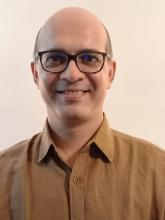
|
Anant Kamath Assistant Professor, Inequality and Human Development Programme Analysing the Contribution of Technical Education to India’s Science Manpower proceedings of Sharing Agendas on Knowledge Systems, UNESCO, Paris |

|
Anant Kamath Assistant Professor, Inequality and Human Development Programme Enabling Inclusive Innovation: The Role of Informal Knowledge Exchanges through Interaction in Rural Low-Tech Clusters WP 13/2009, Systems of Innovation for Inclusive Development, Centre for Policy Research (CPR), New Delhi, and IDRC, Canada |

|
Anant Kamath, Narendar Pani, Ajit Kumar Babu Anant Kamath is ASSISTANT PROFESSOR; Narendar Pani is JRD TATA CHAIR VISITING PROFESSOR, Inequality and Human Development Programme Inequality and Intervention: Experience of Technology NIAS Research Report NIAS/SSc/IHD/U/RR/07/2024 |

|
Anant Kamath ASSISTANT PROFESSOR, Inequality and Human Development Programme Old Caste Exclusions and New Digital Divides https://www.taylorfrancis.com/chapters/oa-edit/10.4324/9781003433194-8/old-caste-exclusions-new-digital-divides-anant-kamath Kamath, A. (2023). Old Caste Exclusions and New Digital Divides. In Technology, Policy, and Inclusion (pp. 179-205). Routledge India. |
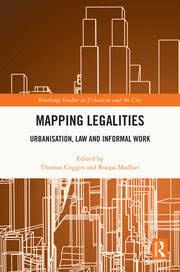
|
Anant Kamath ASSISTANT PROFESSOR, Inequality and Human Development Programme Turbulent transformations and urban undesirables https://www.taylorfrancis.com/chapters/edit/10.4324/9781003384816-9/turbulent-transformations-urban-undesirables-neethi-anant-kamath?context=ubx Neethi, P., & Kamath, A. (2025). Turbulent transformations and urban undesirables: Revanchist urban transition and street-based sex work in Bangalore. In Mapping Legalities (pp. 141-158). Routledge. |

|
Anant Kamath ASSISTANT PROFESSOR, Inequality and Human Development Programme Information sharing through informal interaction in low-tech clusters https://doi.org/10.1080/2157930X.2015.1007570 Kamath, A. (2015). Information sharing through informal interaction in low-tech clusters. Innovation and Development, 5(1), 170–171. |

|
Anant Kamath ASSISTANT PROFESSOR, Inequality and Human Development Programme Usability and feasibility assessment of a smartphone application (Suhriday) for heart failure self-care remote monitoring in an Indian tertiary health care setting: a pilot mixed-methods study https://doi.org/10.1136/bmjopen-2021-056962 Bylappa, B. K., Kamath, D. Y., Josephine, I. S., Shaikh, J., Kamath, A., Rioniz, P., ... & Xavier, D. (2022). Usability and feasibility assessment of a smartphone application (Suhriday) for heart failure self-care remote monitoring in an Indian tertiary h |

|
Anant Kamath ASSISTANT PROFESSOR, Inequality and Human Development Programme Beyond a Technological Understanding of Technology https://www.epw.in/journal/2022/46/commentary/beyond-technological-understanding-technology.html Economic and Political Weekly, 57(46): 22-24 |

|
Anant Kamath ASSISTANT PROFESSOR, Inequality and Human Development Programme Book Review of Mapping Scientific Method: Disciplinary Narrations https://journals.sagepub.com/doi/10.1177/00699659231209662 Kamath, A. (2023). Book review: Gita Chadha and Renny Thomas, ed. 2023. Mapping Scientific Method: Disciplinary Narrations. Contributions to Indian Sociology, 57(1-2), 147-149. |

|
Anant Kamath ASSISTANT PROFESSOR, Inequality and Human Development Programme Technological Weapons of the Weak: Frugal Technological Praxis as Empowerment https://www.epw.in/journal/2024/43/perspectives/frugal-technological-praxis-empowerment.html Economic and Political Weekly, 59(43): 25–29. |

|
Arslan Wali Khan co-authored Doctoral Student, Inequality and Human Development Programme Southward Ho! Demographic Change, the North-South Divide and Internal Migration in India https://www.theindiaforum.in/economy/southward-ho-demographic-change-north-south-divide-and-internal-migration-india Co-Authored with Chetan Choithani. The India Forum: A Journal-Magazine on Contemporary Issues There are demographic and development differences between the North and the South, but concerns about labour migration to the South are not warranted since the movement of labour is an important channel for reaping the demographic dividend as well as achieving regionally balanced development. |

|
Chetan Choithani co-authored Assistant Professor , Inequality and Human Development Programme Southward Ho! Demographic Change, the North-South Divide and Internal Migration in India https://www.theindiaforum.in/economy/southward-ho-demographic-change-north-south-divide-and-internal-migration-india Co-Authored with Arslan Wali Khan. The India Forum: A Journal-Magazine on Contemporary Issues There are demographic and development differences between the North and the South, but concerns about labour migration to the South are not warranted since the movement of labour is an important channel for reaping the demographic dividend as well as achieving regionally balanced development. |

|
Chetan Choithani Rural-Urban Transition and Food Security in India (MiFood Paper No. 12). Working Paper https://93dfc2.p3cdn1.secureserver.net/wp-content/uploads/2023/07/MiFOOD12.pdf?time=1689954236 Co-Authored with Abdul Jaleel CP and S Irudaya Rajan, The Hungry Cities Partnership at the Balsillie School of International Affairs, Waterloo, Ontario, Canada. |

|
Debosree Banerjee Understanding Maoism in India with Socio-Economic Discriminations and Rebel Capabilities https://www.taylorfrancis.com/chapters/edit/10.4324/9781003461975-11/understanding-maoism-india-socio-economic-discriminations-rebel-capabilities-deb… In Anshuman Behera (Ed) Maoist Insurgency, State and People: Overlooked Issues and Unaddressed Grievances. London. Routledge. |

|
Narendar Pani The National Bias of India’s Electoral System (NIAS/SSc/IHD/U/WP/02/2022) http://eprints.nias.res.in/2587/ Co-Authored with Debosree Banerjee and Paul Thomas. Working Paper. NIAS, Bengaluru The faith in the complete power of the majority leading to the first-past-the-post (FPTP) system followed in India’s electoral democracy has an inequality built into the relationship between political support and political power. Using vote shares as the measure of political support and seat shares as the extent of political power, this paper argues that due to the rather dispersed nature of votes received by regional and sub-regional level parties, the FPTP electoral system has benefited the national parties over others in terms of converting their votes to seats. However, this pattern need not be a permanent one, as with the growth of further regionalism, regional and local votes get concentrated, improving their ability to convert votes to seats. |
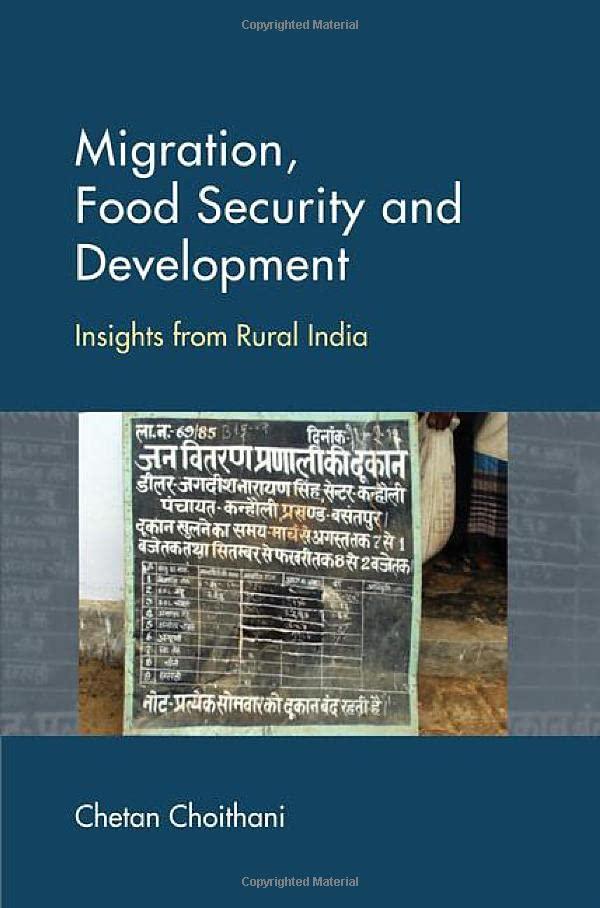
|
Chetan Choithani Assistant Professor, Inequality and Human Development Programme Migration, Food Security and Development: Insights from Rural India https://www.amazon.in/Migration-Security-India-Chetan-Choithani/dp/110884037X/ref=sr_1_1?keywords=chetan%20choithani&qid=1676004754&sprefix=chetan%20… Cambridge University Press This book examines the role of migration as a livelihood strategy in influencing food access among rural households. Migration forms a key component of livelihoods for an increasing number of rural households in many developing countries. Importantly, there is now a growing consensus among academics and policymakers on the potential positive effects of migration in promoting human development. Concurrently, the significance of food security as an important development objective has grown tremendously, and the Sustainable Development Goals agenda envisages eliminating all forms of malnutrition. However, the academic and policy discussions on these two issues have largely proceeded in silos, with little attention devoted to the relationship they bear with each other. Using the conceptual frameworks of 'entitlements' and 'sustainable livelihoods', this book seeks to fill this gap in the context of India - country with the most food-insecure people in the world and where migration is integral to rural livelihoods. |
| |
Chetan Choithani co-authored Assistant Professor, Inequality and Human Development Programme Injected Urbanism? Exploring India’s Urbanizing Periphery https://www.tandfonline.com/doi/full/10.1080/00130095.2022.2133696 Co-authored with Robbin Jan van Duijne and Jan Nijman. In: Economic Geography |

|
Ishita Patil co-authored What happened to the Fishing School? Education, Mobility and Perceptions of Well-being in a Traditional Fishing Community in Western India Co-authored with Nitya Rao. Education, Migration and Development |
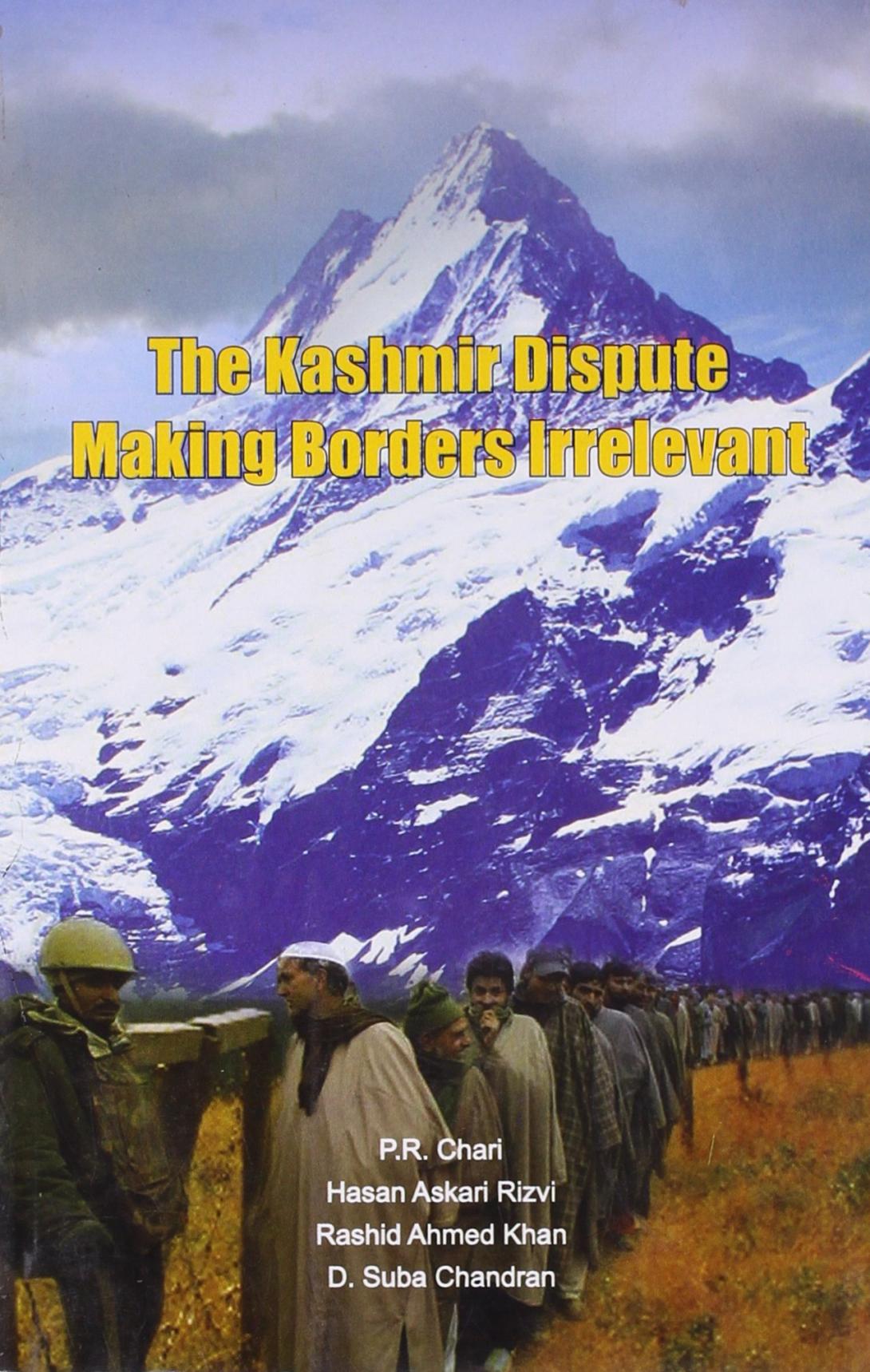
|
D Suba Chandran co-authored Professor and Dean, Inequality and Human Development Programme The Kashmir Dispute: Making Borders Irrelevant Co-authored. New Delhi: Samskriti, 2009 |

|
Anant Kamath co-authored Assistant Professor, Inequality and Human Development Programme Towards the Instrumentality of Inequality Co-authored with Debosree Banerjee and Chetan Choithani. Economic and Political Weekly, Vol. 57 What has been the nature of work and discourse on inequality in India? Has it been more anecdotal and ordinal? Does it sidestep the conceptual and refl ective? Is it an elite discourse even within the subaltern? Does it remain blind to both the subtleties and the macro forces that generate, fuel, and reproduce the condition of inequality? And importantly, has it seriously considered the issue of what inequality does to those at the margins? |

|
Debosree Banerjee Ethnicity and Gender Differences in Risk, Ambiguity Attitude https://www.econstor.eu/bitstream/10419/103994/1/792393031.pdf GlobalFood Discussion Paper Series.No.42. University of Göttingen, Germany |

|
Debosree Banerjee, S Klasen, M Wollni Assistant Professor, Inequality and Human Development Programme Market Discrimination, Market Participation and Control over Revenue: A Gendered Analysis of Cameroon's Cocoa Producers https://www.econstor.eu/bitstream/10419/103986/1/792393910.pdf GlobalFood Discussion Paper Series No. 43, University of Göttingen, Germany |

|
Debosree Banerjee, M Ibanez, G Riener, M Wollni Assistant Professor, Inequality and Human Development Programme Volunteering to take on power: Experimental evidence from matrilineal and patriarchal societies in India https://www.econstor.eu/bitstream/10419/122980/1/840801335.pdf?fbclid=IwAR2o3yGEQogbAgXeQW_M58AEGNYK-9YQlzo09zjhx3JxYu638WavKwomXhI DICE - Discussion Paper (No. 204) |

|
Debosree Banerjee Assistant Professor, Inequality and Human Development Programme Inequality and Farmers' Suicides in India NIAS Working Paper WP5-2016 |

|
Debosree Banerjee Assistant Professor, Inequality and Human Development Programme Poverty and deprivation in India: Divergence between consumption and asset based estimates NIAS/SSc/IHD/U/WP/10/2021 |
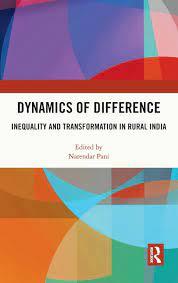
|
Debosree Banerjee Assistant Professor, Inequality and Human Development Programme Agricultural labourer suicides in a Kerala village https://www.taylorfrancis.com/chapters/edit/10.4324/9781003047063-14/agricultural-labourer-suicides-kerala-village-shihabudeen-debosree-banerjee-kshi… Co-authored with Paikam Shihabudeen, Kshitija Joshi. In: Narendar Pani (Ed), Dynamics of Difference: Inequality and Transformation in Rural India, Routledge, 2022 |
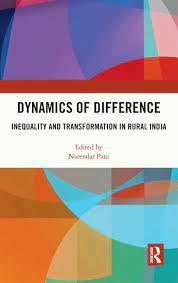
|
Debosree Banerjee Assistant Professor, Inequality and Human Development Programme Regional divergence in farmers’ suicides https://www.taylorfrancis.com/chapters/edit/10.4324/9781003047063-12/regional-divergence-farmers-suicides-debosree-banerjee Co-authored with Paikam Shihabudeen, Kshitija Joshi. In: Narendar Pani (Ed), Dynamics of Difference: Inequality and Transformation in Rural India, Routledge, 2022 |
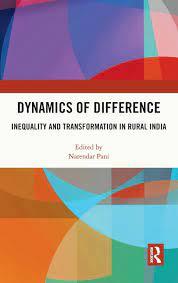
|
Debosree Banerjee, Narendar Pani Assistant Professor, Inequality and Human Development Programme Precariousness and suicide https://www.taylorfrancis.com/chapters/edit/10.4324/9781003047063-16/precariousness-suicide-narendar-pani-debosree-banerjee Co-authored with Paikam Shihabudeen, Kshitija Joshi. In: Narendar Pani (Ed), Dynamics of Difference: Inequality and Transformation in Rural India, Routledge, 2022 |
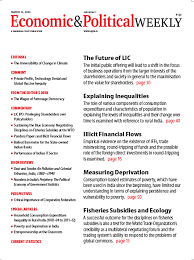
|
Debosree Banerjee Assistant Professor, Inequality and Human Development Programme Poverty and deprivation in India: Divergence between consumption and asset-based estimates https://www.epw.in/journal/2022/11/special-articles/poverty-and-deprivation-india.html In: Economic and Political Weekly, 47(11), pp. 50-56 |

|
Debosree Banerjee Assistant Professor, Inequality and Human Development Programme Conditional cash transfers to mothers, intrahousehold allocations: the role of unobservability https://link.springer.com/article/10.1007/s42495-021-00078-x Co-authored with Stephan Klasen. In: International Journal of Economic Policy Studies, 16: pp. 275-296, 2022. |

|
Chetan Choithani, Bill Pritchard co-authored Assistant Professor, Inequality and Human Development Programme Hunger games: changing targets and politics of global nutrition https://theconversation.com/hunger-games-changing-targets-and-the-politics-of-global-nutrition-32045 The Conversation |
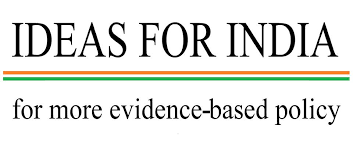
|
Chetan Choithani, Bill Pritchard Assistant Professor, Inequality and Human Development Programme The significance of local power structures in Bihar’s coupon-based PDS https://www.ideasforindia.in/topics/governance/the-significance-of-local-power-structures-in-bihars-coupon-based-pds.html Ideas for India |

|
Chetan Choithani Assistant Professor, Inequality and Human Development Programme How will India respond to internal climate migration? https://thewire.in/environment/how-will-india-respond-to-internal-climate-migration The Wire |

|
Chetan Choithani Assistant Professor, Inequality and Human Development Programme Why India needs to urgently worry about migration caused by climate change https://www.business-standard.com/article/current-affairs/why-india-needs-to-urgently-worry-about-migration-caused-by-climate-change-118062500106_1.h… Business Standard |

|
Chetan Choithani Assistant Professor, Inequality and Human Development Programme What happens to the wives of male migrant workers, who run entire households in villages? https://thewire.in/women/lockdown-migrant-workers-wives The Wire |

|
Chetan Choithani, Reshma Roshania Why do we treat internal migrants differently from international migrants? https://thewire.in/rights/migrants-internal-international-lockdown The Wire |
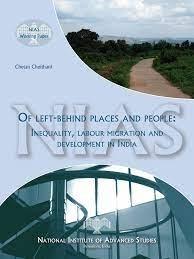
|
Chetan Choithani Assistant Professor, Inequality and Human Development Programme Of left-behind places and people: inequality, migration and development in India http://eprints.nias.res.in/2244/1/WP22-2021-Chetan-Choithani.pdf NIAS Working Paper, NIAS/SSc/IHD/U/WP/22/2021. |

|
Chetan Choithani Assessing Bihar's coupons-based Public Distribution System: Importance of local context https://www.jstor.org/stable/24481125?seq=1 By Chetan Choithani, Bill Pritchard. In: Economic and Political Weekly, 2015 |
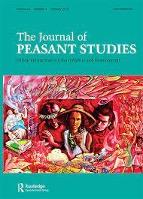
|
Chetan Choithani co-authored 'Stepping back and moving in': The role of the state in the contemporary food regime https://www.tandfonline.com/doi/full/10.1080/03066150.2015.1136621 By Bill Pritchard, Jane Dixon, Elizabeth Hull & Chetan Choithani. In: Journal of Peasant Studies |

|
Chetan Choithani Understanding the linkages between migration and household food security in India https://onlinelibrary.wiley.com/doi/full/10.1111/1745-5871.12223 In: Geographical Research, 2017 |
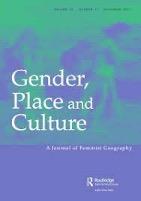
|
Chetan Choithani Gendered livelihoods: migrating men, left behind women and household food security in India https://www.tandfonline.com/doi/abs/10.1080/0966369X.2019.1681366?journalCode=cgpc20 In: Gender, Place and Culture, 2019 |
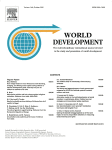
|
Chetan Choithani co-authored Changing livelihoods at India’s rural-urban transition https://www.sciencedirect.com/science/article/pii/S0305750X21002321?via%3Dihub= By Chetan Choithani, Robbin Jan van Duijne, & Jan Nijman. In: World Development, 2021 |

|
Chetan Choithani Feeding India: Livelihoods, Entitlements and Capabilities https://www.routledge.com/Feeding-India-Livelihoods-Entitlements-and-Capabilities/Pritchard-Rammohan-Sekher-Parasuraman-Choithani/p/book/9780415529679 By Bill Pritchard, Anu Rammohan, Madhushree Sekher, S. Parasuraman, & Chetan Choithani. Roultedge, 2015 |
| |
Anindya Sinha co-authored Professor, Inequality and Human Development Programme Cognitive Ethology: A Behavioural Lens into the Primate Mind In: Lectures on Recent Trends in Ethology and Behavioural Sciences, John K Thomas (Ed). Irinjalakuda: Department of Zoology, Christ College, pp. 18–28 |
| |
Anindya Sinha co-authored Professor, Inequality and Human Development Programme Of mice and men: Ethical issues in animal exploitation In: Self, Society and Science: Theoretical and Historical Perspectives, DP Chattopadhyay (Ed). New Delhi: Centre for Studies in Civilizations |

|
Anindya Sinha co-authored Professor, Inequality and Human Development Programme A world survey of husbandry practices for Lion-tailed macaques: Macaca silenus in captivity In: International Zoo Yearbook, International Zoo Yearbook, Blackwell Synergy, pp. 166–175 |

|
Anindya Sinha co-authored Professor, Inequality and Human Development Programme Munzalas in the mist: The discovery of the Arunachal macaque In: Voices in the wilderness: Contemporary wildlife writings, Voices in the wilderness: Contemporary wildlife writings, Prerna Singh Bindra (Ed). New Delhi: Rupa and Company, pp. 75–82 |

|
Anindya Sinha co-authored Professor, Inequality and Human Development Programme Playing God or Being Human? Scientific and Ethical Perspectives in the Cloning of Human Beings In: History of Science and Philosophy of Science: A Historical Perspective of the Evolution of Ideas in Science, Pradip Kumar Sengupta (Ed). New Delhi: Pearson Longman, pp. 473-480 |
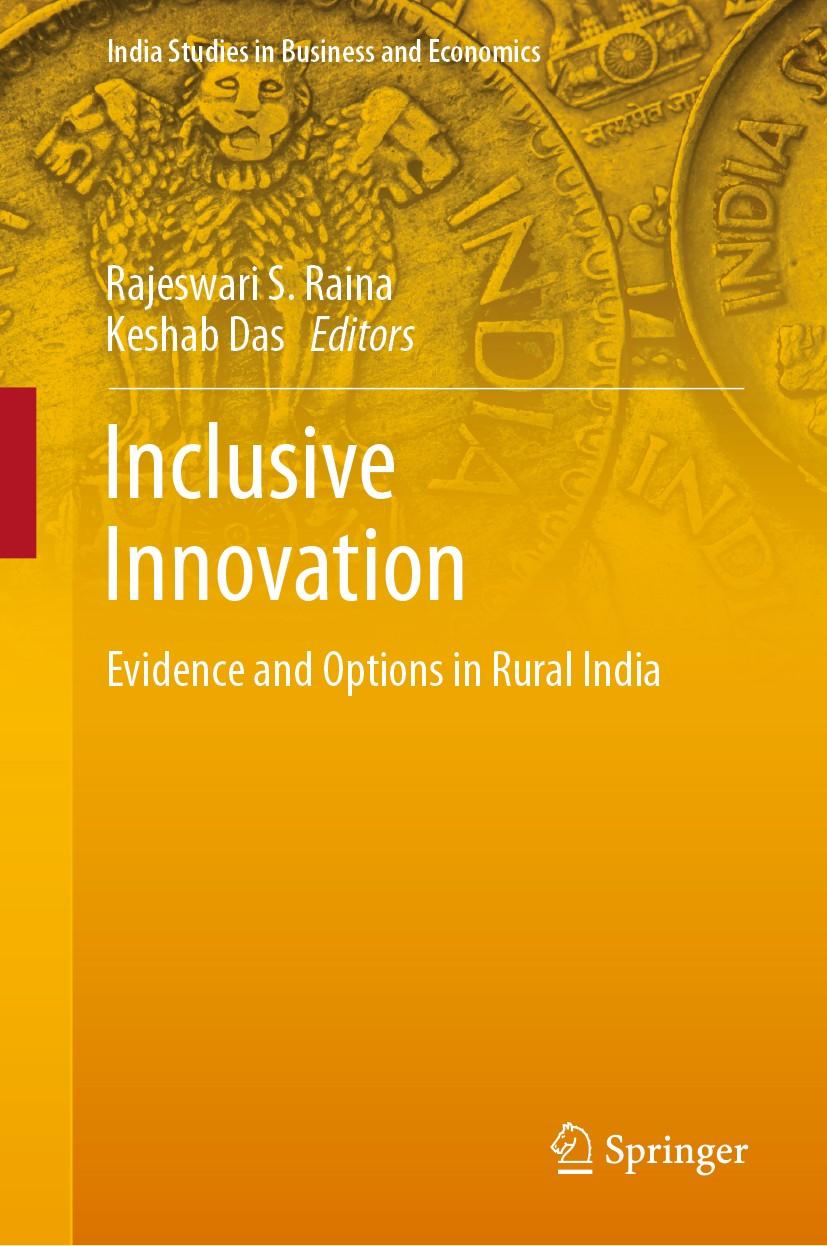
|
Anant Kamath Assistant Professor, Inequality and Human Development Programme Informal information-exchange networks in rural Low-Tech https://link.springer.com/chapter/10.1007/978-81-322-3929-1_5 In: Inclusive Innovation: Evidence and Options in Rural India edited by Rajeswari S. Raina and Keshab Das. Springer India, pp. 101-117 |

|
Anant Kamath, P Neethi co-authored Assistant Professor, Inequality and Human Development Programme A Technological Enquiry into Inequality: A Conceptual Review NIAS/SSc/IHD/U/WP/11/2021): 40 |
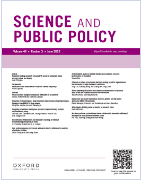
|
Anant Kamath co-authored Assistant Professor, Inequality and Human Development Programme Does technical education in India contribute to its Core-HRST? A case study of IIT Madras https://academic.oup.com/spp/article-abstract/38/4/293/1674009 Science and Public Policy 38(4): 293-305 |
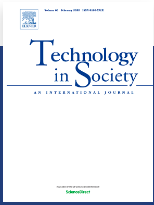
|
Anant Kamath co-authored Assistant Professor, Inequality and Human Development Programme Interactive knowledge exchanges under complex social relations: A simulation model of a developing country cluster https://www.sciencedirect.com/science/article/abs/pii/S0160791X13000651 Technology in Society 35(4): 294-305 |
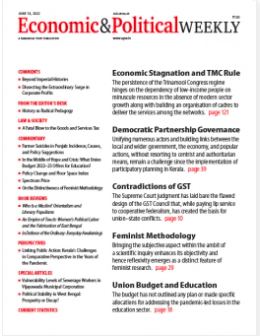
|
Anant Kamath co-authored Assistant Professor, Inequality and Human Development Programme Evidence-based Policymaking: What can we learn from India’s R&D statistics? https://www.epw.in/journal/2014/10/commentary/evidence-based-policymaking.html Economic and Political Weekly 49(10): 13-16 |
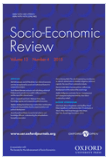
|
Anant Kamath co-authored Assistant Professor, Inequality and Human Development Programme Social Cohesion and Knowledge Diffusion: Understanding the Embeddedness–Homophily Association https://academic.oup.com/ser/article-abstract/13/4/723/2337697?redirectedFrom=fulltext Socio-Economic Review 13(4): 723-746 |
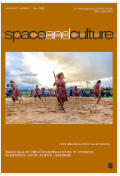
|
Anant Kamath co-authored Assistant Professor, Inequality and Human Development Programme Everyday Place Making Through Social Capital Among Street Vendors at Manek Chowk, Gujarat, India https://journals.sagepub.com/doi/10.1177/1206331219830079 Space and Culture |
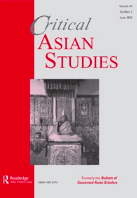
|
Anant Kamath co-authored Assistant Professor, Inequality and Human Development Programme Untouchable Cellphones: Old Caste Exclusions and New Digital Divides in Peri-Urban Bangalore https://www.tandfonline.com/doi/abs/10.1080/14672715.2018.1479192 Critical Asian Studies 50(3): 375-394 |

|
Anant Kamath co-authored Assistant Professor, Inequality and Human Development Programme A qualitative, grounded theory exploration of the determinants of self-care behaviour among Indian patients with a lived experience of chronic heart failure https://journals.plos.org/plosone/article/comments?id=10.1371/journal.pone.0245659 PLoS ONE 6 (1 (e0245659) |
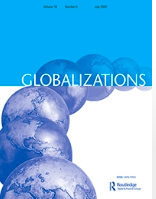
|
Anant Kamath co-authored Assistant Professor, Inequality and Human Development Programme Disappearing spaces and betraying allies: urban transition and street-based sex work in Bangalore https://www.tandfonline.com/doi/abs/10.1080/14747731.2021.1984796 Globalizations |
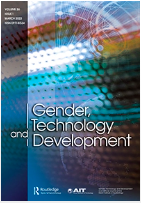
|
Anant Kamath co-authored Assistant Professor, Inequality and Human Development Programme Body politics and the politics of technology: technological experiences among street-based sex workers in Bangalore https://www.tandfonline.com/doi/abs/10.1080/09718524.2021.1933348?journalCode=rgtd20 Gender, Technology and Development |

|
Anant Kamath Assistant Professor, Inequality and Human Development Programme Information Sharing through Informal Interaction in Low-Tech Clusters In: Innovation and Development, Routledge, pp. 170-171 |
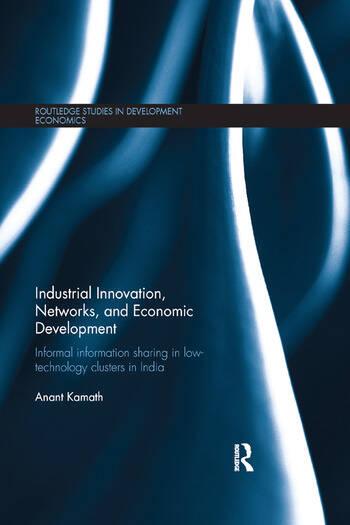
|
Anant Kamath Assistant Professor, Inequality and Human Development Programme Industrial Innovation, Networks, and Economic Development in India: Informal Information Sharing in Low-Technology Clusters https://www.routledge.com/Industrial-Innovation-Networks-and-Economic-Development-Informal-Information/Kamath/p/book/9780367871109 London : Routledge |

|
Narendar Pani Professor and Dean, Inequality and Human Development Programme Don’t forget political economy issues Business Line, May 22, 2019. |

|
Narendar Pani Professor and Dean, Inequality and Human Development Programme How a disruption in Hong Kong hurts China Business Line, August 23, 2019. |

|
Narendar Pani Professor and Dean, Inequality and Human Development Programme Cities must be geared for industrial transition Business Line, September 23, 2019. |

|
Narendar Pani Professor and Dean, Inequality and Human Development Programme This slowdown is a fallout of liberalisation Business Line, December 22, 2019. |

|
Narendar Pani Professor and Dean, Inequality and Human Development Programme Budget smacks of a return to protectionism Business Line, July 05, 2019. |

|
Narendar Pani Professor and Dean, Inequality and Human Development Programme Students tend to resist political cynicism Business Line, December 28, 2019. |

|
Narendar Pani Professor and Dean, Inequality and Human Development Programme Many parallels between Indira, Modi regimes Business Line, February 24, 2020. |

|
Narendar Pani Professor and Dean, Inequality and Human Development Programme Transition to ‘work from home’ may pay off Business Line, March 25, 2020. |

|
Narendar Pani Professor and Dean, Inequality and Human Development Programme The farmers’ protests prove why Mahatma Gandhi’s ideas cannot be buried Outlook, 17 February 2021. |

|
Narendar Pani Professor and Dean, Inequality and Human Development Programme Thirty years of liberalisation: Can the market solve the fears behind farmer protests? The Wire, 28 December 2020. |

|
Narendar Pani Professor and Dean, Inequality and Human Development Programme Thirty years of liberalisation: An idea of growth powered by migrant workers The Wire, 27 December 2020. |

|
Narendar Pani Professor and Dean, Inequality and Human Development Programme Thirty years of liberalisation, a look back at the various pieces of the puzzle The Wire, 26 December 2020. |

|
Narendar Pani Professor and Dean, Inequality and Human Development Programme Farm Bills and the PDS conundrum BusinessLine, 3 November 2020. |

|
Narendar Pani Professor and Dean, Inequality and Human Development Programme Pitfalls of a ‘K-shaped’ recovery. BusinessLine, 28 September 2020. |

|
Narendar Pani Professor and Dean, Inequality and Human Development Programme Taking on Chinese firms calls for a strategy BusinessLine, 23 August 2020. |

|
Narendar Pani Professor and Dean, Inequality and Human Development Programme Why the cry for sporting action amidst Covid. BusinessLine, 29 July 2020. |
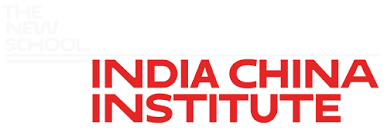
|
Narendar Pani Professor and Dean, Inequality and Human Development Programme The virus of democratically elected authoritarianism. India China Institute, 19 July 2020. |

|
Narendar Pani Professor and Dean, Inequality and Human Development Programme Self-sufficient cities, the answer to the spread of Covid BusinessLine, 29 June 2020. |

|
Narendar Pani Professor and Dean, Inequality and Human Development Programme Raithara atmahatyage hosa Dari. (A new road to farmers’ suicides) (In Kannada) Prajavani, 13 June 2020. |

|
Narendar Pani Professor and Dean, Inequality and Human Development Programme Will migrant workers return to the cities? BusinessLine, 27 May 2020. |

|
Narendar Pani Professor and Dean, Inequality and Human Development Programme No place in a city that migrants can call ‘home’. BusinessLine, 23 April 2020. |

|
Narendar Pani Professor and Dean, Inequality and Human Development Programme A Strategy for Migrant Workers NIAS Policy Brief No. NIAS/SSc/IHD/U/PB/10/2020. |
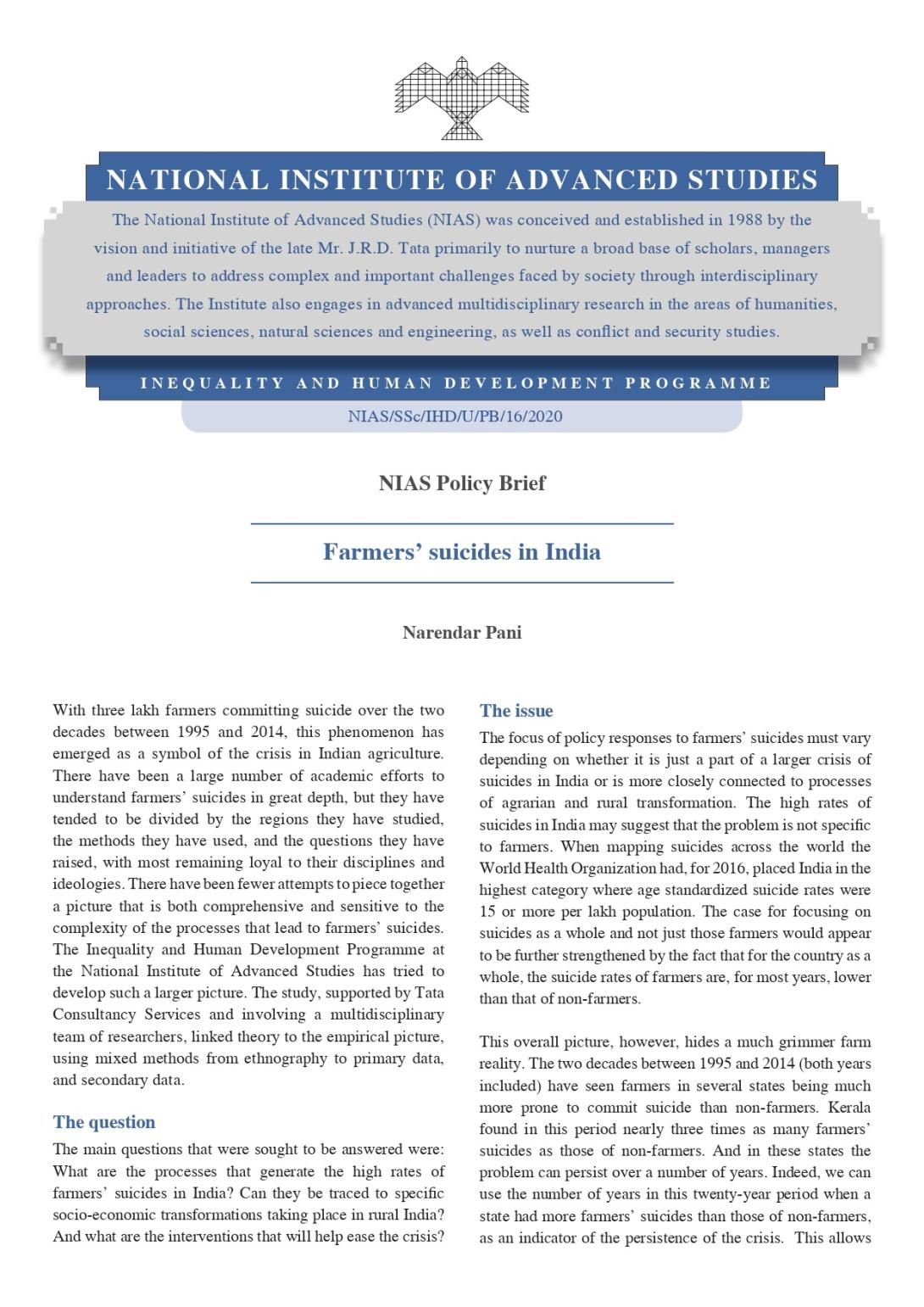
|
Narendar Pani Professor and Dean, Inequality and Human Development Programme Farmers' suicides in India. NIAS Policy Brief No. NIAS/SSc/IHD/U/PB/16/2020. |

|
Narendar Pani Professor and Dean, Inequality and Human Development Programme Towards an asset-based indicator of poverty. Indian Journal of Human Development 14(2): 1-10 |
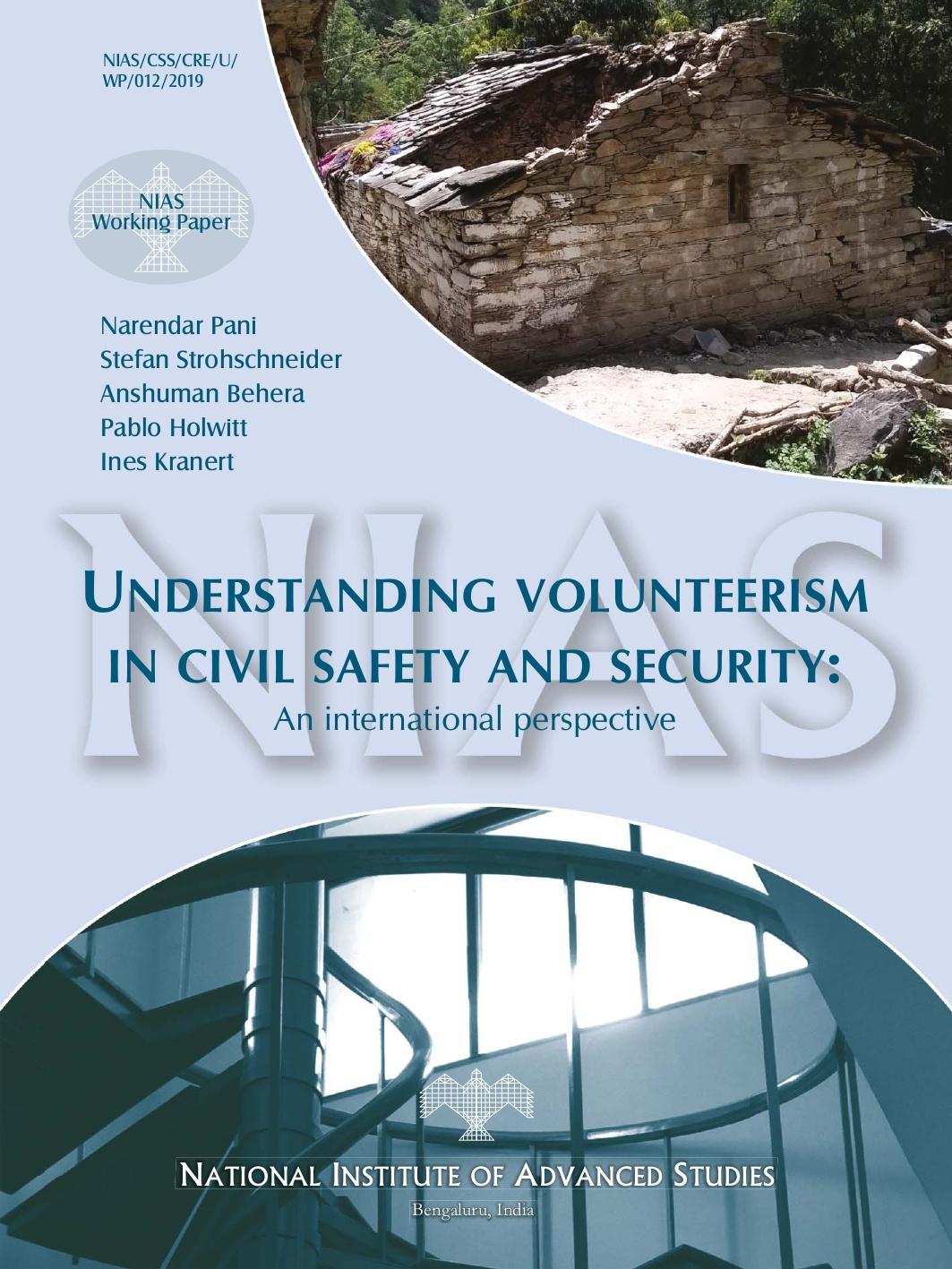
|
Narendar Pani co-authored Professor and Dean, Inequality and Human Development Programme Understanding volunteerism in civil safety and security: An international perspective. (NIAS Working Paper No. NIAS/CSS/CRE/U/WP/012/2019) |
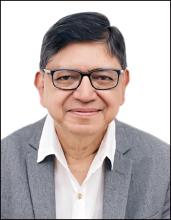
|
Narendar Pani Professor and Dean, Inequality and Human Development Programme Inequality and the demand for non-farm jobs. (NIAS Research Report No. NIAS/SSC/IHD/U/RR/15/2019) |

|
Narendar Pani Professor and Dean, Inequality and Human Development Programme Inequality and farmers’ suicides in India (2019). (NIAS Research Report No. NIAS/SSC/IHD/U/RR/14/2019) |
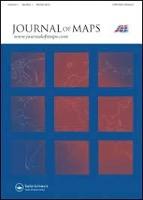
|
Chetan Choithani New urban geographies of West Bengal, East India https://www.tandfonline.com/doi/full/10.1080/17445647.2020.1819899 By Robbin Jan van Duijne, Chetan Choithani, & Karin Pfeffer. In: Journal of Maps, 16 (1 ), pp.172-183, October 2020 |

|
Anant Kamath, Neethi P. co-authored Assistant Professor, Inequality and Human Development Programme Wistron plant turmoil is a consequence of privileging foreign capital over domestic workers. https://thewire.in/labour/wistron-plant-make-in-india-labour-protection-foreign-business The Wire |

|
Anant Kamath co-authored Assistant Professor, Inequality and Human Development Programme Social inequalities, fundamental inequities, and recurring of the digital divide: Insights from India https://www.sciencedirect.com/science/article/abs/pii/S0160791X19304567 Technology in Society 61: 101251 |

|
Narendar Pani The shifting economic base of inclusiveness In: Governing the plural city edited by in Ash Amin. London and New Delhi: The British Academy and National Institute of Urban Affairs, pp 14-18. |
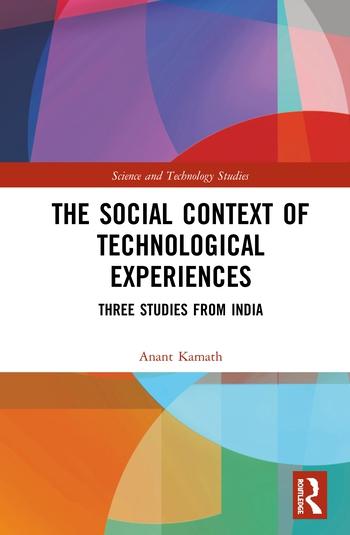
|
Anant Kamath Assistant Professor, Inequality and Human Development Programme The Social Context of Technological Experiences: Three Studies from India https://www.routledge.com/The-Social-Context-of-Technological-Experiences-Three-Studies-from-India/Kamath/p/book/9781138324084 Routledge, UK, and India This book demonstrates how technology and society shape one another and that there are intrinsic connections between technological experiences and social relationships. It employs an array of theoretical concepts and methodological tools to examine the technology–society nexus among three urban groups in India (traditional caste-based handloom weavers, subaltern Dalit communities, and informal female labour). It provides evidence of how innovations such as industrial technologies, communication technologies, and workplace technologies are not only about strides in science and engineering but also about politics and sociology on the ground. The book contributes to the growing research in innovation studies and technology policy that establishes how technological processes and outcomes are contingent on complex sociological variables and contexts. The author offers an inclusive, holistic, and interdisciplinary approach to understanding the field of innovation and technological change and development by involving various methodologies (network analysis, archival work, oral histories, focus group discussions, interviews). The book will serve as reference for researchers and scholars in social sciences, especially those interested in development studies, science and technology policy and innovation studies, information and communication technology (ICT) policy, public policy, management, social work and research methods, economics, sociology, social exclusion and subaltern studies, women’s studies, and South Asian studies. It will also be useful to nongovernmental organisations, activists, and policymakers |
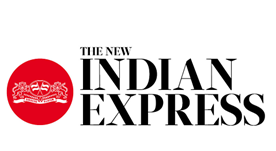
|
Chetan Choithani Assistant Professor, Inequality and Human Development Programme Food security enigma: Child malnutrition high, despite economic growth https://res.us2.list-manage.com/track/click?u=4c96385cee36c21eb5f2510c4&id=811d1ede90&e=2eb0e0e188 The New Indian Express, 26 December 2021 |

|
Narendar Pani Professor and Head, Inequality and Human Development Programme Thirty years of liberalisation: Can the market solve the fears behind farmer protests? https://thewire.in/agriculture/liberalisation-market-fears-farmer-protests Published in The Wire (December 28). |

|
Narendar Pani Professor and Head, Inequality and Human Development Programme Thirty years of liberalisation: An idea of growth powered by migrant workers. https://thewire.in/labour/thirty-years-of-liberalisation-the-volatility-of-migrant-worker-based-growth Published in The Wire (December 27). |

|
Narendar Pani Professor and Head, Inequality and Human Development Programme Thirty years after liberalisation, a look back at the various pieces of the puzzle. https://thewire.in/economy/thirty-years-after-liberalisation-a-look-back-at-the-various-pieces-of-the-puzzle Published in The Wire (December 26). |
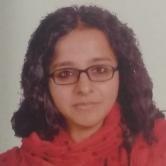
|
Swati Narayan Postdoctoral Researcher, Inequality and Human Development Programme Union Budget 2021: Slashed funds for NREGA, Poshan Abhiyan 2.0, elderly pensions reflect poorly on Centre. https://www.firstpost.com/india/union-budget-2021-slashed-funds-for-nrega-poshan-abhiyan-2-0-elderly-pensions-reflect-poorly-on-centre-9265091.html Published in Firstpost (February 02). |

|
Narendar Pani Professor and Head, Inequality and Human Development Programme The farmers’ protests prove why Mahatma Gandhi’s ideas cannot be buried. https://www.outlookindia.com/website/story/opinion-the-farmers-protests-prove-why-mahatma-gandhis-ideas-cannot-be-buried/374574 Published in Outlook Magazine (February 17, online edition). |

|
Swati Narayan Postdoctoral Researcher, Inequality and Human Development Programme No Country for Women. https://indianexpress.com/article/opinion/columns/india-gender-gap-women-empowerment-pandemic-7291648/ Published in Indian Express (April 28). |

|
Ishita Patil Project Associate, Inequality and Human Development Programme The confessions of an ethnographer: adapting to the new normal. https://ethnomarginalia.com/confessions-of-an-ethnographer/ Published in Ethnographic Marginalia (April 21). |

|
Ishita Patil, Ayesha Pattnaik Project Associate, Inequality and Human Development Programme The issue is exploitation, not migration. https://idronline.org/the-issue-is-exploitation-not-migration/ Published in India Development Review (May 18). |

|
Swati Narayan Postdoctoral Researcher, Inequality and Human Development Programme With 45% of Indians excluded from the food security net, it’s time to universalise the PDS. https://scroll.in/article/997981/with-45-of-indians-excluded-from-the-food-security-net-its-time-to-univeralise-the-pds Published in Scroll (June 20). |

|
Swati Narayan Postdoctoral Researcher, Inequality and Human Development Programme Why India needs an NHS-like healthcare model. https://indianexpress.com/article/opinion/columns/post-covid-india-must-invest-in-an-nhs-like-health-model-7469094 Published in Indian Express (August 26). |

|
Ishita Patil, Nitya Rao Project Associate, Inequality and Human Development Programme What happened to the fishing school?: Education, mobility and perceptions of wellbeing in a traditional fishing community in Western India. In Education, Migration and Development: Critical Perspectives in a Moving World. Bloomsbury UK |

|
Swati Narayan Postdoctoral Researcher, Inequality and Human Development Programme Book Review: Louise Tillin, Indian Federalism Contemporary South Asia 2021, 29(2), 305–306 |

|
Swati Narayan Postdoctoral Researcher, Inequality and Human Development Programme Book Review: S Narayan, The Dravidian Years: Politics and Welfare in Tamil Nadu, Social Change. 2021, 51(3), 441-443 |
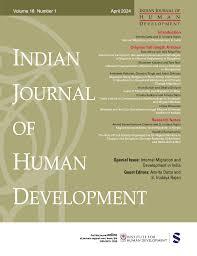
|
Narendar Pani Professor and Head, Inequality and Human Development Programme Towards an Asset-based Indicator of Poverty. https://journals.sagepub.com/doi/full/10.1177/0973703020933740 Indian Journal of Human Development, pp.1-10. |

|
Nisar Kannangara, Nitasha Kaul Postdoctoral Researcher, Inequality and Human Development Programme The Persistence of Political Power: A Communist ‘Party Village’ in Kerala and the Paradox of Egalitarian Hierarchies. International Journal of Politics, Culture, and Society. Online First. |

|
Anant Kamath co-authored Assistant Professor, Inequality and Human Development Programme Urban Undesirables: City Transition and Street-Based Sex Work in Bangalore https://www.cambridge.org/core/books/urban-undesirables/9741DF191FF540ADEB83C0E963B8E1C8 Co-authored with Neethi P, Cambridge University Press, 2022 |

|
Narendar Pani co-edited Professor and Head, Inequality and Human Development Programme Dynamics of Difference: Inequality and Transformation in Rural India. https://www.routledge.com/Dynamics-of-Difference-Inequality-and-Transformation-in-Rural-India/Pani/p/book/9780367547868 Routledge. |
| |
Anamika Ajay Stepping into another Woman's Shoes: Substitute Women in Families of Female Emigrant Workers Volume WP7-2017, Bengaluru (2017) |
| |
Sumedha Bajar Locational Mismatch between the Demand for Jobs and the Demand for Skills in India Volume WP6-2017, Bengaluru (2017) |
| |
Narendar Pani Professor and Head, Inequality and Human Development Programme Normative and Descriptive Inequalities NIAS Working Paper: WP8 – 2017 |
| |
Jiyaul Haque Land, Caste and Power in Circular Migration NIAS Working Paper: WP9 – 2018 |

|
Swati Narayan Post-Doctoral Associate, Inequality and Human Development Programme Time for Universal Public Distribution System: Food Mountains and Pandemic Hunger in India https://res.us2.list-manage.com/track/click?u=4c96385cee36c21eb5f2510c4&id=a836a0991e&e=2eb0e0e188 Indian Journal of Human Development, 13 October 2021 Nearly 45% of India’s population without National Food Security Act (NFSA) ration cards have been largely excluded from the central government's food rations during the pandemic lockdowns, despite historic levels of food stocks in government granaries. Therefore, the time is opportune for universal expansion of the public distribution system. |
Lectures and Seminars
Swati Narayan gave a talk on ‘Denial of eggs to children in school mid-day meals' for India Counter Dialogue on the UN Food Systems Summit on September 04, 2021
Anant Kamath spoke at the ISID-CII Roundtable on Harnessing Industry 4.0 for India’s Development, organised by the Institute for Studies in Industrial Development (ISID) on 25 August 2021, about technology and inequality in the context of inclusiveness of marginalised groups.
Anant Kamath, and co-researcher Neethi P., presented a paper at the RC21 Conference Sensing the City: People, Places, Power organised by the International Sociological Association (ISA) and University of Antwerp on 16 July 2021, about urban transition and street-based sex work in Bangalore city.
Anant Kamath presented a paper at the IPPN Annual Conference Technology and Policy, organised by the Indian Public Policy Network (IPPN) and the Indian School of Business (ISB) on 27 March 2021, about expanding the concept of the digital divide.
Swati Narayan gave a talk on ‘Journey of the National Food Security Act’, organised by Centre for Policy Research, Indian Institute of Technology (IIT) Bombay on March 26, 2021.
Swati Narayan gave a talk on ‘Post-budget Food Security and Nutrition’ for Janta Parliament on March 04, 2021.
Anant Kamath gave a talk on technology and society at the NIAS-DST Training Programme on ‘Science and Technology: Global Developments and Perspectives,’ on 15 February 2021.
Anant Kamath, and co-researcher Neethi P., presented a paper at Urban Arc 2021 Urban Imaginaries, organised by the Indian Institute for Human Settlements (IIHS) Bangalore on 14 January 2021, about urban transition and street-based sex work in Bangalore city.
Narendar Pani gave an online seminar at the New School at New York on November 10, 2020. In his talk titled ‘Volatility and power in India’a distance dualism’, he discussed dynamics of circular labour migration. The full talk is available here.
Chetan Choithani delivered a talk on ‘Migration narrative in India’ in New York University’s Steinhardt School on November 04, 2020.



